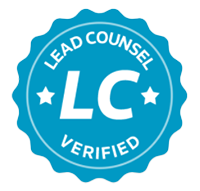Trusts & Estates Law
Estate planning is one of the most important steps you can take to secure your family’s future, preserve your wealth, and avoid the unnecessary delays and costs of probate court. At The Law Office of Miller & Gaudio PC, we offer clients across New Jersey comprehensive estate planning services that are legally sound, strategically designed, and tailored to their specific life situations.
With decades of experience in estate law, our attorneys are equipped to help you protect what matters most—your family, your assets, and your legacy.
Why Choose The Law Office of Miller & Gaudio PC?
Proven Experience in Estate Law
Our attorneys bring decades of focused experience in estate planning, probate, elder law, and asset protection. We have successfully represented clients across New Jersey, from modest estates to complex multi-million-dollar portfolios.
Personalized, Relationship-Based Service
We believe that estate planning is personal. That’s why we don’t offer cookie-cutter templates. Every client receives one-on-one attention, a unique strategy, and guidance that is responsive to their evolving needs.
Integrity, Excellence, and Client Trust
Our firm’s reputation has been built on professionalism, thoroughness, and ethical integrity. We’re proud that most of our clients come through referrals from satisfied families, financial advisors, and local professionals who trust us to handle sensitive, high-stakes matters with care and confidence.
Understanding Trusts and Estates
Why Estate Planning Matters
Estate planning is not only for the wealthy or the elderly—it is a critical legal step for anyone who wants to safeguard their assets, protect their loved ones, and make thoughtful decisions about their legacy. Without a proper plan in place, state laws—not your preferences—will determine how your assets are distributed, who manages your affairs, and how long your family must wait to receive their inheritance.
What Is a Trust?
A trust is a legal arrangement where one party (the trustee) holds and manages assets on behalf of another (the beneficiary). Trusts can be used to avoid probate, reduce taxes, protect assets from creditors, and control how and when assets are distributed. A revocable living trust allows you to retain control of your assets during your lifetime and ensure a seamless transfer to your beneficiaries after death. On the other hand, irrevocable trusts offer stronger protections and tax benefits, though they generally cannot be altered once established.
Trusts are highly customizable tools that can serve a variety of purposes—from caring for minor children and beneficiaries with special needs to preserving family wealth across generations.
What Is an Estate?
Your estate consists of everything you own—real estate, bank accounts, investments, personal property, and more. An effective estate plan ensures that these assets are managed according to your wishes both during your lifetime (in case of incapacity) and after your death.
Estate planning is about more than just distributing property. It includes making important decisions about health care, guardianship of children, charitable giving, and who will manage your affairs. These decisions are formalized through legal instruments such as wills, powers of attorney, health care proxies, and trusts.
The Role of Legal Guidance
Trust and estate law can be complex, involving a mix of state-specific rules, tax implications, and personal family dynamics. At The Law Office of Miller & Gaudio PC, we help you navigate these legal intricacies with clarity and confidence. Our attorneys work closely with you to identify your goals, evaluate your financial landscape, and design a plan that fits your needs today while protecting your legacy for tomorrow.
Whether you’re starting from scratch or need to update an existing estate plan, our team provides experienced, responsive, and reliable legal counsel every step of the way.
The Cost of Probate: Why Avoid It?
Probate Can Be Slow and Expensive
Probate is the legal process of validating a will and distributing an estate. While it may seem straightforward, it often becomes time-consuming, costly, and stressful for heirs. In New Jersey, probate can stretch over several months or even years, especially if disputes or asset valuation issues arise. Court fees, executor fees, and attorney costs can significantly reduce the value of the estate.
Public Record and Family Conflict
What many people don’t realize is that probate is a public process. All details of the estate—including assets, debts, and beneficiaries—become part of the public record. This can lead to privacy concerns and even family disputes. Disgruntled relatives or opportunistic creditors can challenge the proceedings, delaying settlement and creating emotional strain.
The Better Alternative: Plan Ahead
Avoiding probate is not about cutting corners—it’s about planning smart. Using legal instruments such as trusts allows for a smooth, private, and cost-effective transfer of assets, avoiding the burdens of court involvement.
What Is a Trust-Based Estate Plan?
The Revocable Living Trust
A revocable living trust is a foundational tool in modern estate planning. It allows you to maintain full control of your assets while you are alive, then smoothly transition those assets to your chosen beneficiaries after your death—without court interference. You can change or revoke the trust at any time, offering flexibility as your circumstances evolve.
Irrevocable Trusts for Greater Protection
For clients with more complex financial profiles or higher liability concerns, irrevocable trusts offer additional protection. These trusts remove assets from your taxable estate and place them beyond the reach of lawsuits or creditors. While you relinquish control, you gain significant tax and liability benefits.
Additional Trust Structures
Depending on your goals, we may recommend:
- Generation-skipping trusts to preserve wealth for grandchildren and reduce tax liability
- Grantor retained annuity trusts (GRATs) to transfer appreciating assets while minimizing estate taxes
- Family limited partnerships (FLPs) to consolidate family-owned businesses and real estate under one protected entity
Trust Funding and Support Documents
Creating a trust is only half the task. The trust must be properly funded, meaning that titles to assets like homes, investment accounts, and business interests must be retitled in the name of the trust. We handle this for you, and also prepare a pour-over will to ensure any untransferred assets are still distributed according to your wishes.
Legal Asset Protection: Beyond Estate Planning
Safeguarding Against Lawsuits and Creditors
If you own significant assets—such as real estate, businesses, or investment portfolios—you may be vulnerable to lawsuits, divorce settlements, or creditor claims. We implement asset protection trusts and use strategies like homestead exemptions, limited liability entities, and Medicaid spend-down planning to shield your estate from risk while maintaining legal compliance.
Medicaid and Long-Term Care Planning
Many clients are surprised to learn that long-term care expenses can quickly deplete their life savings. We offer planning strategies to preserve eligibility for Medicaid benefits while protecting family assets from forced liquidation.
How We Help: Our Process and Commitment
A Tailored Plan for Your Family
Our work begins with a comprehensive consultation. We take the time to understand your family structure, financial position, and personal wishes. Whether you need a simple will or a sophisticated multi-generational trust, we deliver a plan that reflects your values and anticipates your needs.
Step-by-Step Guidance
From drafting and signing documents to retitling assets and educating successor trustees, we handle each step of the estate planning process. Our attorneys stay available after your plan is completed to help you make updates as your life evolves—whether due to marriage, divorce, new children, real estate purchases, or retirement.
Ongoing Legal Support
We don’t just draft documents and disappear. We remain your legal partner for the long term, assisting with trust administration, executor duties, beneficiary claims, and probate litigation if necessary. You can count on us to provide clarity, stability, and advocacy for every aspect of your estate.
Frequently Asked Questions
Do I need both a will and a trust?
Yes, in many cases, it’s beneficial to have both. A revocable living trust allows your assets to bypass probate, offering faster and more private distribution to your heirs. However, a pour-over will serves as a safety net to cover any assets not titled in the name of the trust at the time of your death. Together, they ensure a complete and legally secure estate plan.
How does a living trust help me avoid probate?
A living trust holds legal title to your assets while you’re alive and directs their distribution after death. Because the assets are no longer considered part of your probate estate, they pass directly to your named beneficiaries without court involvement. This means faster access for your heirs, reduced legal fees, and greater privacy.
What kind of trust protects my estate from lawsuits and creditors?
An irrevocable trust is often used for asset protection purposes. Once you transfer assets into this type of trust, they are no longer considered part of your personal estate, making them much harder for creditors or litigants to reach. These trusts must be carefully structured to comply with state and federal law, which is why legal guidance is essential.
Can I change my trust after I create it?
If you create a revocable trust, yes—you can amend or revoke it at any time while you’re mentally competent. This flexibility makes revocable trusts ideal for individuals who anticipate changes in their personal, financial, or family circumstances. Irrevocable trusts, however, generally cannot be changed once established.
What is trust funding, and why is it important?
Trust funding is the process of transferring ownership of your assets into the trust. This includes retitling property deeds, reassigning bank accounts, and updating beneficiary designations. A trust that isn’t properly funded won’t be effective in avoiding probate, so it’s a crucial step in the planning process. Our office handles this process for clients to ensure full legal compliance.
Contact The Law Office of Miller & Gaudio PC Today
Your legacy deserves protection. Whether you want to avoid probate, minimize estate taxes, or ensure a smooth transition of wealth to your family, The Law Office of Miller & Gaudio PC is here to help.
Contact us today to schedule a confidential consultation with an experienced estate planning attorney. Together, we’ll craft a plan that reflects your life, protects your assets, and provides peace of mind for the future.
Let us help you take the next step in securing your legacy.


